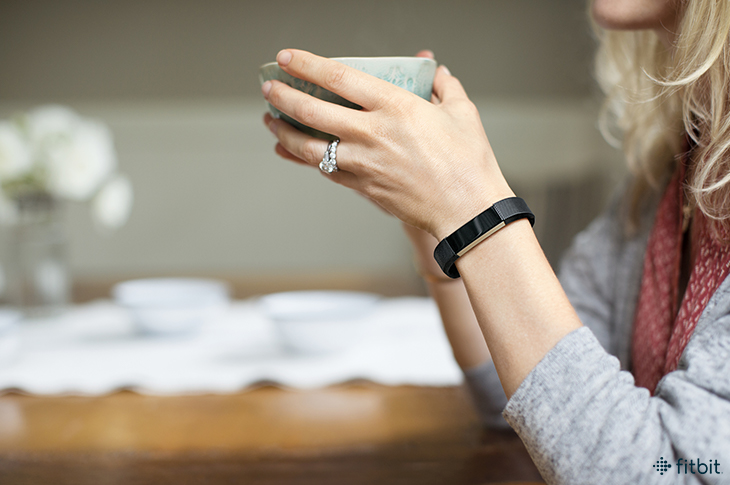
Have you listened to your body today? It may sound silly, but experts agree self-care—literally the act of loving and caring for yourself—is essential. “Self-care is meeting your basic human needs, so that you have the energy and brainpower you need to feel motivated, engaged, productive, healthy, and happy,” says Cynthia Ackrill, MD, a primary care doctor turned executive coach who specializes in teaching stress management and leadership skills. “It means becoming more aware of your physical, mental, emotional, and spiritual energy and creating habits to check and meet your own needs.”
Your self-care routine may be different from your mom’s, sibling’s, or partner’s, but everyone benefits just the same. “Self care can reduce the likelihood of having symptoms of depression and anxiety, reduce overall stress that leads to improved concentration and productivity, and even reduce your chances of developing stress-related conditions like heart disease, migraines, and certain viruses,” says Atlanta-based psychiatrist Dion Metzger, MD. “The less stressed you are, the stronger your immune system is.” Your self-care practice can also have an effect on your relationships. “When people are less stressed, they’re less likely to cause conflict or redirect their frustration toward those they love,” says Metzger.
Ready to give your life a positive boost with a little self love? Here are all the ways Fitbit can help.
SELF-CARE IDEAS YOUR TRACKER CAN HELP YOU KEEP
Go to the doctor. Are you overdue for a check-up? Vaccine? Teeth cleaning? Whatever necessary appointment you’ve been putting off, make it and then immediately put it in your calendar. If you have a Fitbit Alta, Alta HR, Charge 2, or Blaze and have calendar notifications turned on, your device will vibrate at the date and time specified, so you don’t forget and have to cancel the appointment. All up to date on doctor visits? Set a calendar notification for something fun, like meeting a friend for coffee.
Take your meds. Between vitamins, prescriptions, birth control, and over-the-counter meds, it’s easy to miss a dose. Setting a silent alarm is great way to get a subtle reminder. If you own any Fitbit tracker besides Zip, you can set up to eight.
Stay hydrated. Water keeps your body balanced, ensuring it functions properly. There’s also evidence that people who started drinking one, two, or three more glasses per day ate fewer calories and less saturated fat, sodium, and sugar. Set a hydration goal in your Fitbit app or on your Fitbit.com dashboard to stay motivated to hit your mark.
Take regular breaks. By now you’ve heard that “sitting is the new smoking,” but do you know taking extra steps can offset sitting? Set up reminders to move on your Fitbit Flex 2, Alta, Alta HR, Charge 2, or Blaze to motivate you to take at least 250 steps every hour. If you haven’t hit that mark by ten minutes to the hour, your tracker will nudge you to get up with a gentle buzz.
Breathe. When you’re feeling stressed, one of the easiest and most effective things you can do is breathe. Let your Blaze or Charge 2 guide you through a two- or five-minute deep-breathing session via the Relax experience. Have a different tracker? Set a silent alarm to remind you to do one of these five deep-breathing exercises daily.
Get a full night’s sleep. Getting adequate rest helps protect your mental health, physical health, quality of life, and safety, according to the National Institutes of Health. To ensure you stay on track, experts recommend keeping a regular sleep schedule. If your Fitbit device tracks sleep, then your tracker can help you with this. Just click on the sleep tile in your Fitbit app and then on the gear icon at the top right. From there you can set a sleep goal (7 to 9 hours is recommended for adults), as well as target times you want to go to sleep and wake up. Next, turn on bedtime reminders and set it to notify you at least 30 minutes before your bedtime. That way you know to turn off the TV or computer and can begin to wind down, which will help you fall asleep faster and sleep longer.
Sweat it out. Exercise is a great way to get feel-good endorphins flowing. And now, you don’t even have to think about what to do. The recently updated Fitstar by Fitbit Personal Trainer app will recommend workouts for you based on the activity data in your Fitbit account.
Eat good food. One of the healthiest things you can do for your body is nourish it with whole foods. Not sure how your diet stacks up? Give food logging a shot. If you find that you need more lean protein, whole grains, colorful fruits and veggies, or healthy fats, this Super Fast, Superfood Meal Plan has got you covered.
Join a community. Having a support system is essential to mental health. The National Alliance on Mental Illness recommends engaging with your family, friends, teammates, and faith community or joining an online community. Find like-minded people who can support you via Fitbit’s online forums, Fitbit Local events, and, soon, in-app groups.
This information is for educational purposes only and is not intended as a substitute for medical diagnosis or treatment. You should not use this information to diagnose or treat a health problem or condition. Always check with your doctor before changing your diet, altering your sleep habits, taking supplements, or starting a new fitness routine.

Feb 20? This year is flying by.
I agree time is flying by . I am trying to get myself back together . Busy at work tired during the day have a full plate I have high blood pressure have check my blood pressure walking get my legs and ankle in shape have to see what my back doctor says when he checks my back see if I can walk and run .
I have a concern, of all the Fitbits mentioned for calendar or alarm reminders the Surge isn’t mentioned. Of course that is the devise I have, does that mean none of these options are available?